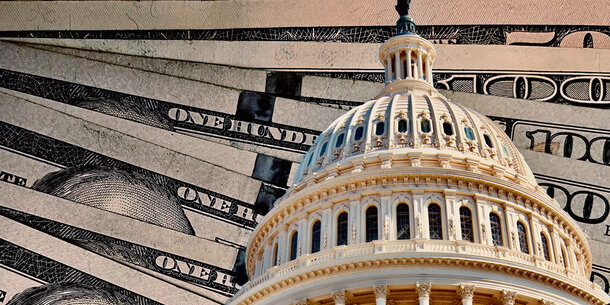“The Presidency is not merely an administrative office. That’s the least of it,” Franklin Delano Roosevelt once explained. “It is preeminently a place of moral leadership.”
For two years Donald Trump has wielded the bully pulpit of the White House as a bully. He’s attacked, degraded, mocked, stoked division, and stirred resentment. On Tuesday, we reached a new milestone: the U.S. House of Representatives passed an eloquent motion that strongly condemned the president’s “racist comments” demanding that four congresswomen of color “go back to” their countries of origin (three of the four were, of course, born here, and one was a refugee).
This was a first. Neither chamber of Congress has passed a resolution plainly denouncing a president’s actions, let alone words, in memory. But Trump’s statements are equally unprecedented, in the past century at least. If the House acts, it would also recognize that the political system can’t simply look away from his outrageous language. The power to speak – to uplift and explain, or to denigrate and demonize – is one of the principal powers of the office. He’s abused that power.
The president’s words have always been understood to be a central part of governing. When I was director of speechwriting for President Bill Clinton, we were acutely aware that every line of every speech was freighted with implications for policy, diplomacy, even budgeting. One factually challenged sentence in a George W. Bush State of the Union was deemed so significant it ultimately led to a criminal investigation (not of the speech, but of the subsequent effort to discredit a critic). Speechwriters from every administration, Democrat and Republican, shared this nervous sense of responsibility. So did presidents. We all knew that every published statement, whether written or spoken, was compiled by the National Archives and published in a thick bound book twice a year.
Of course, at times we’ve heard code words or worse from the White House. As vice president-elect in 1921, Calvin Coolidge wrote an article in Good Housekeeping, asking “Whose Country Is This?” He wrote, “Biological laws tell us that certain divergent people will not mix or blend. The Nordics propagate themselves successfully. With other races, the outcome shows deterioration on both sides.” As president, though, fortunately, Coolidge kept mostly silent. So have the others who followed. Trump’s words really are uglier than those from any president in a century.
So what to do with Trump’s tweets?
For a while, the political and legal system has not known quite how to deal with these eruptions. We know Trump isn’t just some drunk bigot at the end of a bar, even if he talks like one. We know that no CEO of a publicly traded company would last five minutes acting this way.
Sooner or later, it becomes tempting to tune out his tweets. After all, he’s announced major moves by tweet, only to see his own administration disregard them. He announced a withdrawal of U.S. troops from their mission providing humanitarian aid and fighting ISIS in Syria, for example, only to have the Pentagon respond with a knowing shrug. He announced a ban on transgender troops, only to be ignored.
But Trump’s tweets and statements offer an unparalleled window into the administration’s id. They made clear, for example, the real purpose of the now-abandoned census question on citizenship – to use it to change political rules to disadvantage immigrant and nonwhite communities.
The courts have begun to grapple with them. Legal expert Kate Shaw wrote a pathbreaking law review article urging that in some cases they be taken seriously as statements of presidential intent, just as we might take a speech or a policy document. In the key case testing that idea, though, a supine Supreme Court sided with the White House. Federal courts found that his campaign trail demand for “a complete and total shutdown of Muslims entering the United States” to be a good guide to why his administration took action to ban travelers from nine Muslim-majority countries. But the Supreme Court said his statements didn’t matter. “The Proclamation is squarely within the scope of Presidential authority,” Chief Justice John Roberts wrote. He later added: “Because there is persuasive evidence that the [policy] has a legitimate grounding in national security concerns, quite apart from any religious hostility, we must accept that independent justification.”
Just recently, another federal appeals court ruled that the president could not block his critics on Twitter. His account, the judge wrote, was effectively a governmental function, and could not discriminate based on the viewpoint of an individual.
But if it isn’t clear yet that his Tweets are official statements of policy, they emphatically are part of the arsenal of the presidency. The office was long governed by a sense of the presidential voice, the decorum and (most of the time) majesty that was presumed to be how a president would speak.
When the House of Representatives impeached President Andrew Johnson in 1868, one count charged him with declaring, “with a loud voice, certain intemperate, inflammatory and scandalous harangues, and therein utter loud threats and bitter menaces, as well against Congress as the laws of the United States duly enacted thereby, amid the cries, jeers and laughter of the multitudes then assembled in hearing.” (The articles quoted Johnson’s Trump-like tirades at length.) By just one vote the Senate declined to remove Johnson from office.
All that may seem fusty and antiquated. In fact, it recognizes something special about the office. Only the president can speak with a singular voice, heard by everyone. After all that’s happened since 2016, there’s a reason we find ourselves shocked, genuinely appalled, by what Trump has said. Those tweets will stoke bigotry, normalize hatred, and while we hope this isn’t true, create an atmosphere of at least incipient violence. They’re vile. The House of Representatives is right to take them seriously.
(Image: Alex Wong/Getty)






